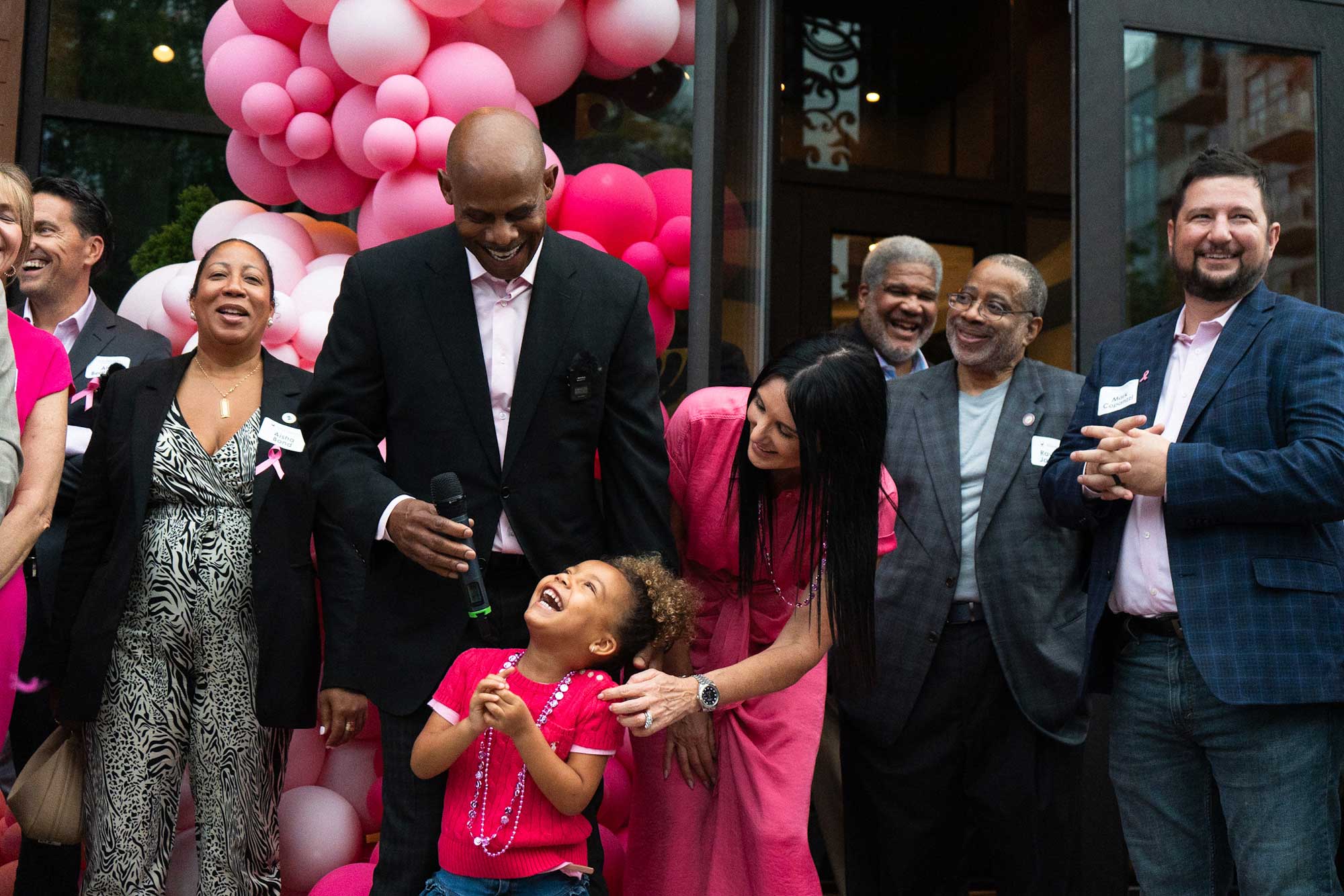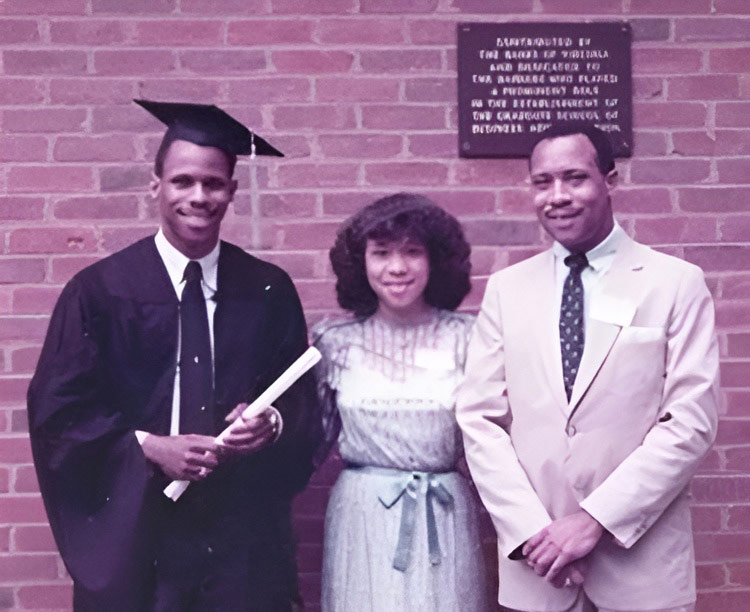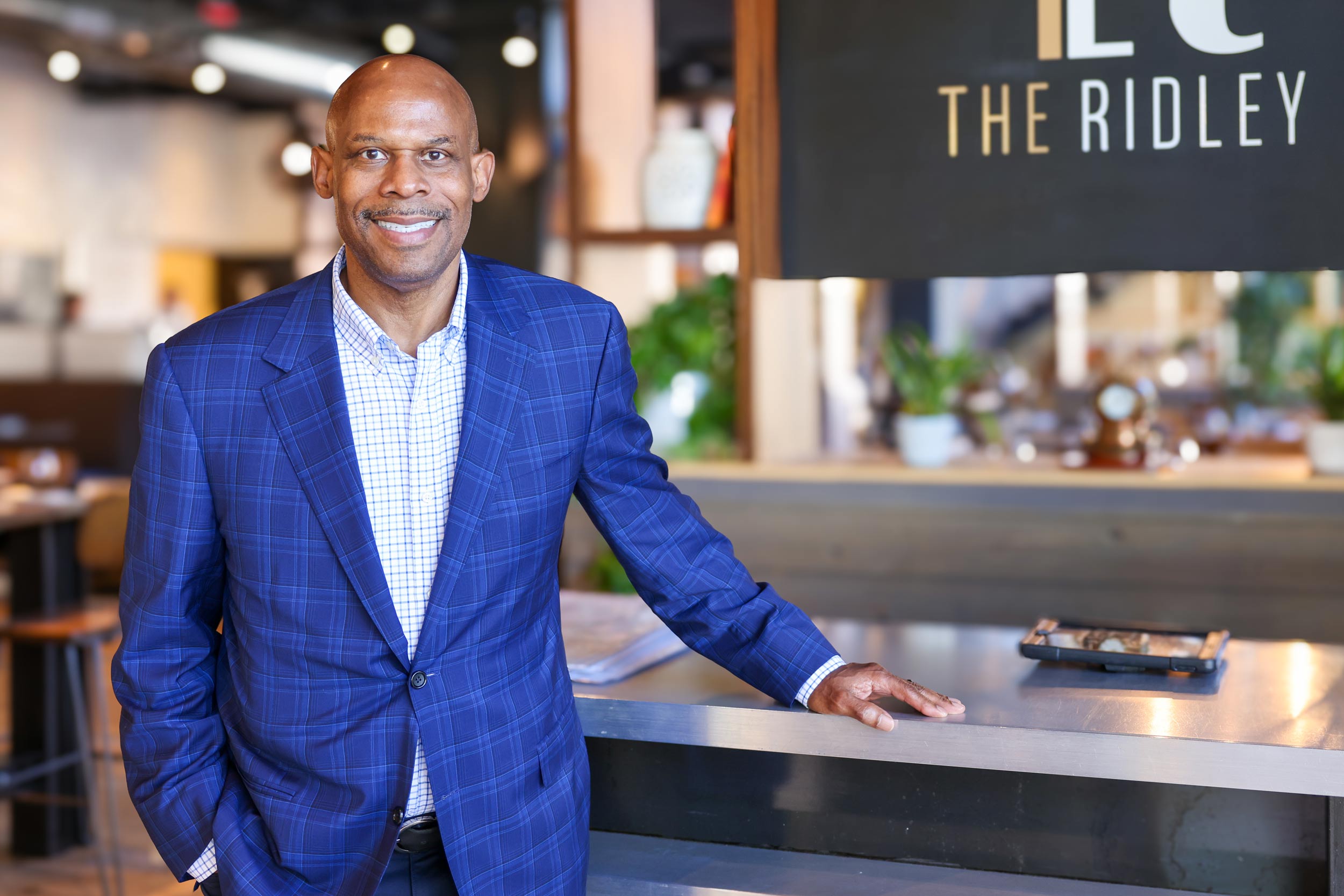When Warren Thompson visits the new leaders of restaurants his company owns, he often asks them if they describe themselves as a corporate person or an entrepreneur.
It isn’t a trick question. There’s no right or wrong answer, but Thompson, a graduate of the University of Virginia’s Darden School of Business, clearly favors one answer.
“I’m looking for that person who would say they’re more of an entrepreneurial-type person, meaning they’re going to take calculated risks to move the company ahead,” he said during a recent interview at the Reston headquarters of Thompson Hospitality Corp.
Nelson County Roots
That active, adventurous spirit has served Thompson well. Selling produce with his father at age 15, Thompson figured he could expand the business and get more apples and peaches from Nelson County orchards to the market in Tidewater faster if he bought a school bus for a bargain price and removed the seats to create storage space. The idea worked.
Fifty years and countless business experiences and lessons later, Thompson, 65, finds himself contemplating retirement after building a company that has grown into the nation’s largest minority-owned food service and facilities management company.

Thompson enjoys a moment with his wife, Danielle, and daughter, Skylar, during the October grand opening of the Hen Quarter Prime restaurant in Washington, D.C. (Contributed photo)
Thompson Hospitality employs more than 6,000 people and generates nearly $1 billion in annual revenue. The company owns more than 70 restaurants, including investments in Ralph Sampson’s American Tap Room and The Ridley in Charlottesville. In addition, Thompson Hospitality provides contract food service and facilities management services to higher education and corporate partners.
“When you start a company, you’ve got more time than money. When you’re getting toward the end of the company, you have more money than you have time,” he said. “I have to make every minute count.”
Thompson and his wife, Danielle, started a family later than most, and he brightens immediately when talking about his 4-year-old daughter, Skylar, whom the couple adopted as an infant.
“She’s becoming a part of the business now,” Thompson chuckled. “She goes around and greets. She’ll ask them how the meal is, or she’ll go with her mother and come back and give me a report.”
Planning for Succession
Developing a plan for the future of Thompson Hospitality is a little behind the original timeline. The COVID-19 pandemic paused that activity as the company had to find a way to maneuver around the pandemic, which decimated the service economy.

Thompson stands with his sister, Benita, and brother, Fred, during his 1983 Darden School graduation ceremony. (Contributed photo)
Thompson said his early business lessons provided guidance: He and his father didn’t just sell fruit, they marketed vegetables and raised hogs for a meatpacking plant. The diversified income stream made sense then, and it made sense during the pandemic; Thompson Hospitality expanded to offer services and operate restaurants and hotels.
Once the economy leveled, Thompson looked toward what came next for him and for the company he established 32 years ago. His chief financial officer, Ali Azimi, plans to retire at the end of 2024 and will be succeeded by fellow Darden School graduate Joe Lawler, currently senior vice president for strategy and finance.
Seeking New Perspectives
Thompson’s company also prides itself on using diverse suppliers on some 30% of its purchases. It purchases from small businesses and women- and minority-owned companies and even serves in a mentorship role.
Thompson said his company is deeply committed to being a diverse and inclusive workplace – principles ingrained in him by his life experiences, including seeing the effects of racial discrimination on his parents and during his career.
“It’s just a part of our culture,” he said. “Our business model has always been that we present a better option to the customer. We say to that client, ‘We understand your customer better than anyone else.’ So, we make the business case, not the diversity case, as to why.”










